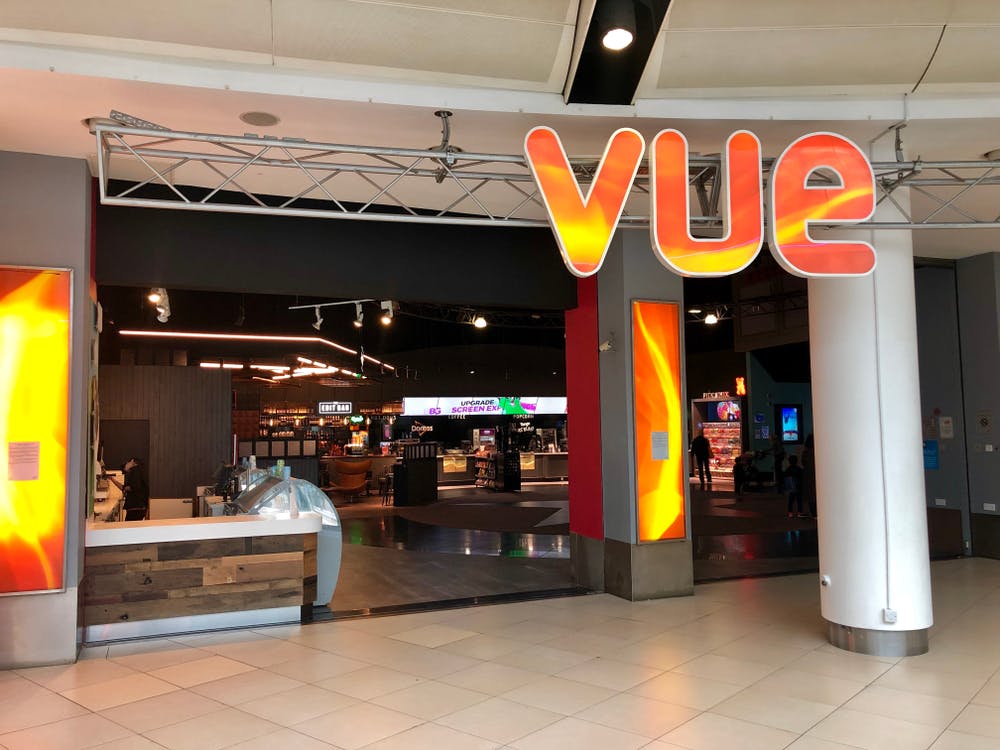 Vue has been a leader in the event cinema space for the better part of a decade, but despite having vast experience in expanding its product offer, it felt “conscious” about entering the gaming category – a “long-term ambition” of the brand, according to its marketing lead.
Vue has been a leader in the event cinema space for the better part of a decade, but despite having vast experience in expanding its product offer, it felt “conscious” about entering the gaming category – a “long-term ambition” of the brand, according to its marketing lead.
Speaking at the Market Research Society’s Annual Conference 2025, executive director of brand, marketing and communications at Vue International, Shona Gold, explained the cinema chain worked to engage the entire leadership team in this challenge.
“Gaming isn’t just the product,” she said. “I can launch a new chair, no problem, or a new big cinema screen. But gaming is a culture. It’s a lifestyle. And one of my main priorities was that we didn’t look naive as a brand entering this space and get it wrong.”
For Ruth Hinton, group head of customer experience and insight, it was important that research was the “catalyst” of the project and would “drive it” rather than merely “support it”. Focus was key and so her team focused on one question rather than the “multiple topics” that always popped up when the idea had been floated in the past.
“The one key question being: how can you use our big screens in our auditoriums for a gaming experience?” she said.
Involving senior leadership
Rather than go off and conduct the research and then present its findings back to the executive team, Hinton approached the challenge from an unconventional angle – to get the executive directors involved in the research from the very beginning.
“That was really quite uncomfortable and very different,” she said. “It does take a bit of boldness and courage to get the executive directors involved at this stage.”
But as an international project, it was still unclear where it would sit, so the team decided it was a challenge worth pursuing.
To help run the sessions, Hinton approached external research agency One Minute To Midnight who aimed to “shift mindsets” within the organisation and stop the executive board seeing this solely as a business opportunity and instead put themselves in the mindset of the customer.
“We wanted to take Vue from thinking, what can we do and who are the partnerships that we could leverage, to thinking about who is this audience, what matters to them and what motivates them,” said Karis O’Leary-Smith, research partner at One Minute To Midnight.
The team also leveraged the talent within the business that knew more about the sector they were trying to enter than they did. Hinton recalls how there were “passionate gamer colleagues” who worked in the cinema who were invited to be participants in its workshops alongside consumers.
“They are younger and more into gaming culture than a lot of us in head office,” she said. “We needed their perspective, both as consumers but also as the people that would implement the ideas.”
Hinton believes that the “unique mix of perspectives” uncovered insights and research that traditional methods wouldn’t have got to – but it also really “accelerated” the process and helped make it a “quicker project” than perhaps it would have been otherwise.
Gold points to one of the insights that the team uncovered and that became fundamental to the eventual launch of the Vue gaming experience. It was the idea of “building excitement through active involvement”, something that Gold believes “flips cinema on its head”.
“We’re a place where you go for two hours and you switch off. You sit down and we tell you to be quiet,” Gold said. “This insight allowed us permission to change our etiquette up.”
It ended up underpinning several eventual partnerships, including with League of Legends, of which it has livestreamed Esports finals, Coca-Cola for a foyer gaming experience, and McLaren on its ‘Beat The Pro’ racing simulation experience.
Bringing in executive leadership earlier also had the unexpected benefit of being able to stop ideas in their tracks that would have gone a “long way down the road” otherwise. Gold recalls how Vue’s CEO had an idea around bringing online streamers into cinemas for a live cinema experience – but from the seminars they were able to discover that even if you have “millions of followers” that doesn’t mean they all live in Manchester, for example, and are willing to travel to their local cinema to watch you.
“It’s not easy to say that when I’m not a gamer,” said Gold. “But that’s where the gamers in our business – be they cinema managers or junior people in our business – were able to sit in the room with our CEO and tell him, ‘That’s not going to work.’ And he would listen to that because they’re the experts, not him.”


